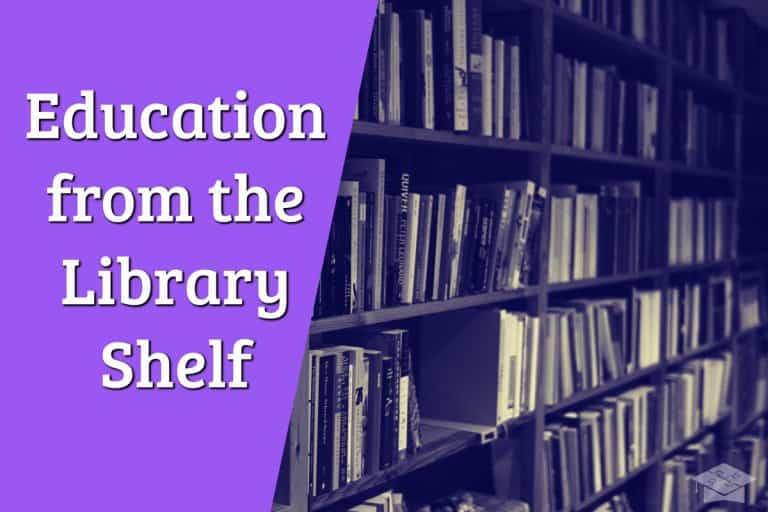The Case for Reading: My Library-Shelf Education

I’m grateful for my bookish childhood.
We watched almost no TV. On a typical day, after doing chores, math, and other schoolwork for a few hours, my siblings and I had the rest of the day practically to ourselves. I chose to fill those hours with books. And although they were usually fiction, my books played an unexpectedly valuable role in my education.
I was rarely forced to read but merely encouraged. I was surrounded by literature — of every genre, era, length, and style. But I was taught to read and then set loose on wings of curiosity.
A Literary Diet
My literary diet was varied and rich. I read classics for the fun of it. My vocabulary outpaced my dictionary. Long words and longer sentences sharpened my comprehension and attention span. My spelling was almost intuitive, as was my grammar, punctuation, and sense of story.
Volumes of nursery rhymes and poetry beat their rhythm into my unconscious mind.
I traveled the world. Historical fiction brought to life those dusty textbook people and places: I wept with bound slaves, paced the long Oregon trail, fought the Civil War on the front lines, and sailed the merciless seas.
And that was just the fiction.
Among the Dewey Decimals, I pored over detailed Usborne books that dissected castles and pyramids. Springs and pulleys piqued my imagination in David Macauley's whimsical The Way Things Work. One summer I even raced my brother to read through the entire Bible (though I doubt I got much spiritual benefit). Our home shelves held a set of World Book Encyclopedias, a favorite reference for us pondering kids (How many bones do I have? What do salamanders eat? How do you draw the flag of Brazil?).
School was reading library books
For school, Mom would often bring library books home, a stack 50 or so high, mostly non-fiction, on a subject — maybe art, or horticulture, or the pilgrims. She would pick a few to read aloud. The rest sat there in a colorful heap, winking and daring us to open them. So we did.
Though my mom occasionally splurged on new books, our shelves were mostly peopled with budget books: Free from the library, or bought by the dime at yard sales, by the dollar at thrift stores, by the pound at book sales. I grew a little with every book.
I won’t lie: I have read very few fiction books that enriched my mathematical skills or helped me memorize dates or state capitals. And print can never replace firsthand experience; life needs living. Yet a well-read mind possesses a map of the world that allows the curious to wonder and learn at will. I know mine does.
Teaching a child to read means more than simply providing the tools of sounds and sentences. It means cultivating a joy and a curiosity as they fold open each fresh page.
As they say, if you teach a man to read, he’ll learn for a lifetime ... or something like that.







Leave a Reply